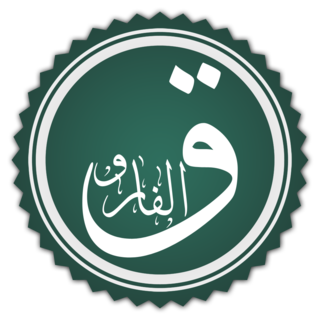Hale is a unisex given name. Notable people with the name include:
Hale is a unisex given name. Notable people with the name include:
Ismail is an Arabic given name. It corresponds to the English name Ishmael.
Saʽid, also spelled Saʽeid, Said, Saïd, Sid, Saeed, Saed, Saied, Sayeed or Sayid, is a male Arabic given name which means "blessed, good luck, joy" or "happy, patient". The name stems from the Arabic verb sa‘ada.
Hamdi is a masculine Arabic given name and surname. Notable people with the name include:
Yılmaz is a Turkish word that translates to "plucky", “unyielding”, "unbeatable", or "brave", and is a very common surname and occasional male given name.
Onur is a common Turkish given name and a surname. In Turkish, "Onur" means "Honour" or Pride. Its origin comes from Latin "honor, honōrem", most resembling the word Onore in Italian. Notable people with the name are as follows:
Trevor is a common given name or surname of Welsh origin. It is an habitational name, deriving from the Welsh tre(f), meaning "homestead", or "settlement" and fawr, meaning "large, big". The Cornish language equivalent is Trevorrow and is most associated with Ludgvan.
Yusuf is a male name meaning "God increases". It is the Arabic equivalent of the Hebrew name Yosef and the English name Joseph. It is widely used in many parts of the world by Arabs of all Abrahamic religions, including Middle Eastern Jews, Arab Christians, and Muslims.
Tariq is an Arabic word and given name.

Farooq is a common Arabic given and family name. Al-Fārūq literally means "the one who distinguishes between right and wrong."
Bo or Bó as a surname may refer to:
Naim is a male given name and surname.
Shahin is Male or Female given name which is the Persian term for hawk or falcon, specifically the peregrine falcon. The name Shahin is a composite of two nouns: "shah" – king and "īn" – a sign of proportion, freedom, or "royal"; thus literally "king of the birds".
Selahattin is the Turkish spelling of the Arabic Muslim masculine given name Salah ad-Din. Notable people with the name include:
Saleh or Saaleh [ Arabic form of the Hebrew Shelah, Selah or Methuselah ] is a semitic masculine name derivative from the Arabic language which means "righteous" or "pious".
Aydın (pronounced[ˈajdɯn], also spelled Ajdin, Aiden, Ayden, Aydin, or Aydan, is a Turkic male given name meaning enlightened and bright in the Azeri and Turkish languages. Notable people with the given name or surname include:
Ata is the anglicized form of several names in several languages around the world.
Osman or Usman is the Turkish, Persian, and Urdu transliteration of the Arabic masculine given name Uthman.
Nadeem/Nadim/Nadiem/Nedim is an Arabic masculine given name. It means "best friend of the drinker", "companion", "confidant" or "friend".

Ibrahim is the Arabic name of the prophet and patriarch Abraham and one of Allah's messengers in the Quran. It is a common male first name and surname among Muslims and Arab Christians, a cognate of the name Abraham or Avram in Judaism and Christianity in the Middle East. In the Levant and Maghreb, Brahim and Barhoum are common diminutives for the first name Ibrahim.
Hale is a surname. Lords of Loddon-Hales, Hale or "De Halys" trace back to Lord Roger De Halys circa 1130; his descendant Lord Roger De Halys married Alice Scrogins circa 1275, and their daughter Alice Hale married Thomas of Brotherton, 1st Earl of Norfolk, the son of Edward I of England. Those who were the ancestors of William Hale who married Rose Bond of Kingswaldenbury, their grandson George Hale came to America on the ship "Supply" in 1620, where he lived with the governor Sir Francis Wyatt of Virginia. Other Hale descendants also use the noble title Earl of Tenterden, Viscount of Tinsdall and the Baronets Of Beakesbourne and Coventry. Many Armorial achievements have also been used by Hale descendants. It is said that the Hales were related to Saint Edmund, King of East Anglia in which the Hales get their Arrows pointing downward in their coat of arms.